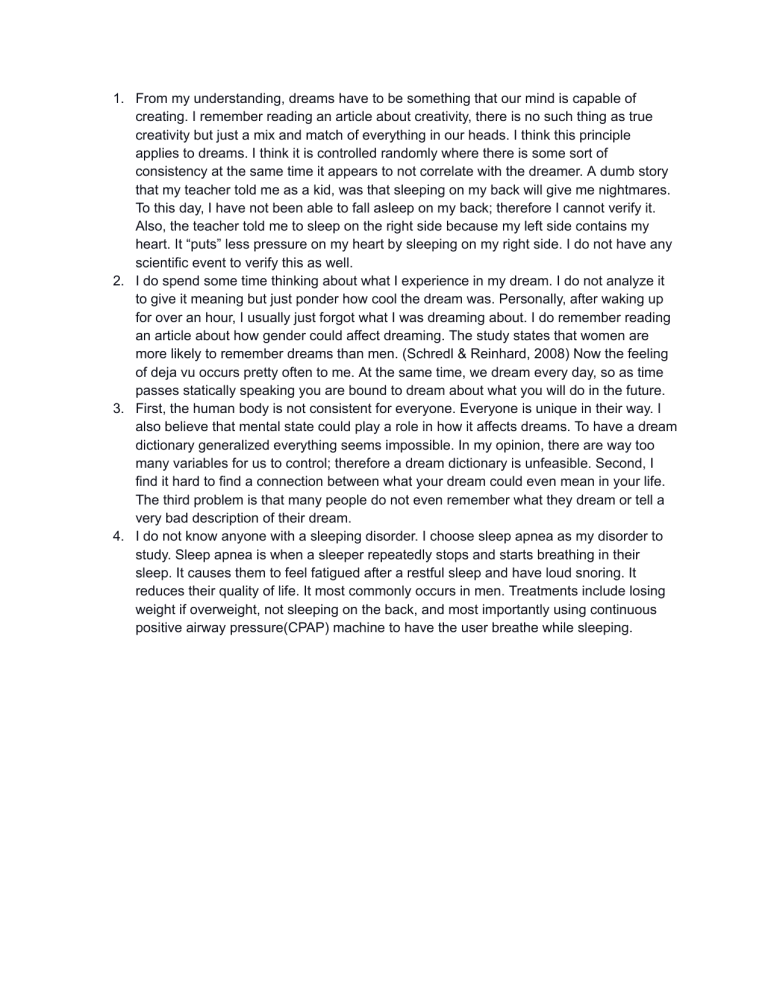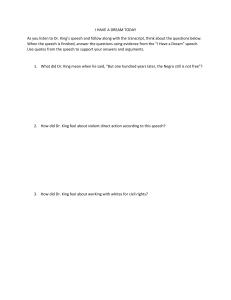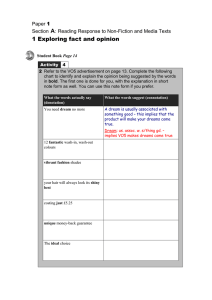
1. From my understanding, dreams have to be something that our mind is capable of creating. I remember reading an article about creativity, there is no such thing as true creativity but just a mix and match of everything in our heads. I think this principle applies to dreams. I think it is controlled randomly where there is some sort of consistency at the same time it appears to not correlate with the dreamer. A dumb story that my teacher told me as a kid, was that sleeping on my back will give me nightmares. To this day, I have not been able to fall asleep on my back; therefore I cannot verify it. Also, the teacher told me to sleep on the right side because my left side contains my heart. It “puts” less pressure on my heart by sleeping on my right side. I do not have any scientific event to verify this as well. 2. I do spend some time thinking about what I experience in my dream. I do not analyze it to give it meaning but just ponder how cool the dream was. Personally, after waking up for over an hour, I usually just forgot what I was dreaming about. I do remember reading an article about how gender could affect dreaming. The study states that women are more likely to remember dreams than men. (Schredl & Reinhard, 2008) Now the feeling of deja vu occurs pretty often to me. At the same time, we dream every day, so as time passes statically speaking you are bound to dream about what you will do in the future. 3. First, the human body is not consistent for everyone. Everyone is unique in their way. I also believe that mental state could play a role in how it affects dreams. To have a dream dictionary generalized everything seems impossible. In my opinion, there are way too many variables for us to control; therefore a dream dictionary is unfeasible. Second, I find it hard to find a connection between what your dream could even mean in your life. The third problem is that many people do not even remember what they dream or tell a very bad description of their dream. 4. I do not know anyone with a sleeping disorder. I choose sleep apnea as my disorder to study. Sleep apnea is when a sleeper repeatedly stops and starts breathing in their sleep. It causes them to feel fatigued after a restful sleep and have loud snoring. It reduces their quality of life. It most commonly occurs in men. Treatments include losing weight if overweight, not sleeping on the back, and most importantly using continuous positive airway pressure(CPAP) machine to have the user breathe while sleeping.



